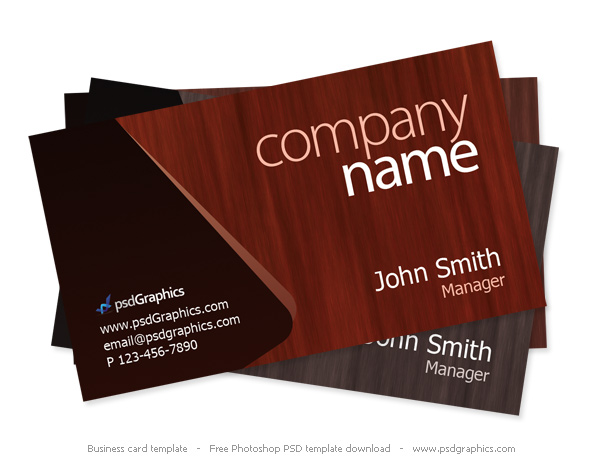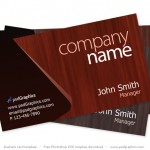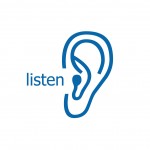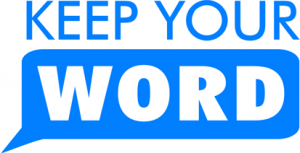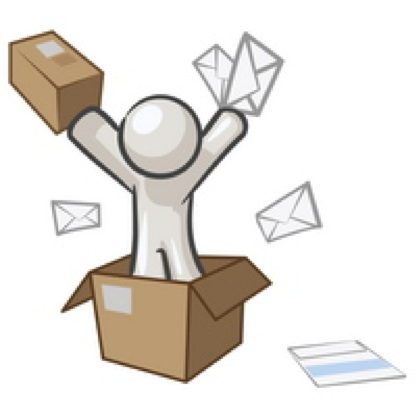
10 Ways To Make Your Cover Letter Stand Out
February 9, 2012
By Natalia
Hundreds of resumes are flooding into many hiring and HR managers. So how do you get someone’s attention? Does your cover letter “kill” or get thrown in the “b” pile? Many of your comments indicate that some of you think that using a cover letter is a relic of the past, while others have discovered that a well crafted cover letter actually differentiated them from the herd of followers. To the non-believers, you can just keep filing out those online applications and HOPE for a response. But for those who are proactive and innovative, a cover letter can lead to new opportunities. If you already found the perfect job, you probably would not be reading this. So maybe it’s time to take a leap of faith “back to the future” with a well-crafted cover letter.
 Your cover letter is the first impression that you give employers. Sometimes without a GOOD cover letter, your resume does not get the attention it deserves. Let’s face it; resumes get skipped over all the time. That’s why you have to come up with a strategy on how to sell yourself to this potential employer. Set yourself apart by telling the employer how you will help them achieve their goals and what they reap if they hire you. If a cover letter does not attract the reader’s attention in the first paragraph, then, your chances of being called for an interview are drastically reduced. An employer may have a hundred or more resumes to look through and he or she is probably limited in time to make their selection. Here are a few tips that can help you toward a high quality cover letter.
Your cover letter is the first impression that you give employers. Sometimes without a GOOD cover letter, your resume does not get the attention it deserves. Let’s face it; resumes get skipped over all the time. That’s why you have to come up with a strategy on how to sell yourself to this potential employer. Set yourself apart by telling the employer how you will help them achieve their goals and what they reap if they hire you. If a cover letter does not attract the reader’s attention in the first paragraph, then, your chances of being called for an interview are drastically reduced. An employer may have a hundred or more resumes to look through and he or she is probably limited in time to make their selection. Here are a few tips that can help you toward a high quality cover letter.
Tip #1:
If you are going to mail your cover letter, then, use high-quality white paper; it’s thicker than typewriter or printer paper. Avoid elaborate or colored stationery. Print a clean final copy to send, not a photocopy. Make sure there are no smudges or grease marks on the paper. Keep your extra copies in a large envelope or manila folder.
(Reader Comments:)
“FYI to those who think mailing isn’t worth it: I just mailed 217 covers/resumes to recruiting offices in the Midwest. I’ve received more calls, e-mails and one-on-one service in the last 10 days than I did in the whole first 5 months of my search. Think about it…you don’t just drop into the electronic void, they have to contact you and request the electronic copy. Have to say mailing worked great for me.”)
Tip #2:
Keep your cover letter brief and to the point. Your letter should not go over one page. Use short paragraphs and bullet points whenever possible. Avoid excessive words when fewer words will get your point across equally. Construct your cover letter to have the same format style as your resume.
Tip #3:
Highlight a most recent accomplishment or credential that you are proud of. This gives employers a hint of what you are capable of doing. Impress the employer with your skills and qualifications.
Tip# 4:
If you’re e-mailing your letter, make sure your document will open properly as an attachment and that your computer system is virus-free.
Tip #5:
Your return address should appear in the top right hand corner, without your name. As a general rule, you should avoid abbreviations in the addresses of your cover letters, although abbreviating the state is common in all business correspondence. The date should appear two lines beneath your return address on the right hand side of the page. Write out the date; do not use the abbreviated format. Example: February 11, 2012.
Tip #6:
Always try to find the name and proper title of the addressee before you send out a cover letter. Two lines beneath the date on the left margin of the letter, list the full name of the addressee preceded by Mr. or Ms. (Do not use Miss or Mrs., even if you happen to know the marital status of the addressee). On the next line, list the individual’s formal title; on the subsequent line, list the name of the company. This is followed by the company’s address, which generally takes two lines. The salutation should be typed two lines beneath the company’s address. It should begin with “Dear Mr.” or “Dear Ms.” You should never use “To Whom It May Concern.”
Tip #7:
Request an interview or follow-up call in your closing paragraph. This gives the impression that you are eager and ready. Truth be told, sometimes you have to follow up yourself and call the employer to check the status. However, be patient. Give them at least a week to follow-up.
Tip #8
Use a professional ending such as “Respectfully yours,” or “Sincerely”. Don’t forget to sign your name; preferably, black ink. Nothing looks worse than a letter with a big white space where the signature is supposed to be. E-mailed cover letters are exempt to this.
Tip #9:
Do not use the same cover letter for every job that you are applying for. Tailor your cover letter to that particular company.
Tip #10:
Most important: PROOFREAD! PROOFREAD! PROOFREAD! Use spell check and if available, have someone else look over it. Nothing is better than two pairs of eyes. Misspelled words will definitely send your resume to the bottom of the pile and possibly overlooked!
Written by Tressa Manns. I am a freelance writer and working the 9-5 as a Human Resources Supervisor. My goal is to utilize all my skills in acting, writing, promoting and marketing. △
Reprinted From:

